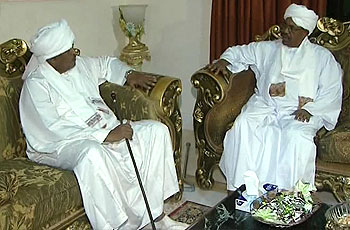Sudan says national dialogue is not a sign of weakness
June 15, 2014 (KHARTOUM) – The Sudanese First Vice President Bakri Hassan Saleh on Sunday called for a dialogue process that leads to national reconciliation and consensus while emphasizing fundamentals of the nation.

He also warned that laws will deal with anyone who seeks to breach it, and renewed the government’s keenness to promote democracy through elections.
Last January, Sudanese president Omer Hassan al-Bashir announced a 4-point plan for reform “to stop the war and bring peace, free political society, fight against poverty and revitalise national identity”, calling for political forces to engage in dialogue to agree on the implementation items though he did not specify practical steps to do so.
He announced a series of resolutions at the onset of a political roundtable held later in Khartoum with the participation of 83 political parties.
He instructed authorities in the states and localities across Sudan to enable political parties to carry out their activities inside and outside their headquarters without restrictions except those dictated by the law.
The Sudanese president also pledged to enhance press freedom so that it can play its role in the success of the national dialogue unconditionally as long they abide by the norms of the profession.
Political detainees who have not been found to be involved in criminal acts will be released, Bashir added.
He also stressed the government’s commitment and willingness to allow rebels to participate in the national dialogue and vowed to give them adequate and appropriate safeguards to attend and depart safely afterwards.
But the National Umma Party (NUP) suspended its participation in the dialogue last month after its leader was arrested in connection with remarks he made accusing Sudanese government militias of committing serious abuses.
The Reform Now Party (RNP) also followed suit citing government crackdown on political and press liberties.
The ruling National Congress Party (NCP) accused leftist forces namely the Communist, Baath and Conference parties of undermining the process and seeking to exploit the dialogue initiative to overthrow the regime.
In the same context, the 2nd Vice President Hassabo Abdul-Rahman, underscored the seriousness of the government in moving forward with the national dialogue as a mechanism to resolve the problems of Sudan, and pointed out that the NCP did not call for dialogue as a result of weakness, but for national reasons.
(ST)
